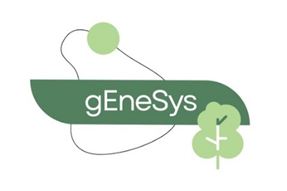Venice International University
October 6-10, 2025
Call for applications: January 15 - March 31, 2025
gEneSys “Transforming Gendered Interrelations of Power and Inequalities in Transition Pathways to Sustainable Energy Systems” is a European project exploring all these facets of the gender-energy nexus with the aim of proposing pathways for a just and gender-equitable energy transition.
The shift to renewable energy is an important change for society, both in the Global North and South, allowing us to produce energy without relying on fossil fuels. By employing technologies that have the potential to revolutionize industries, enhance efficiency, and create new economic opportunities, sustainable energy addresses global challenges such as climate change and societal needs. As with every sociotechnical revolution, this shift brings along challenges affecting the different subsystems involved in the energy transition processes. Inequalities and drawbacks can be reproduced or exacerbated at the environmental, economic, social, and political level.
As with all technologies and policies that have a direct impact on people's lives, considerable gender inequalities can also be observed in the energy transition - both in relation to the production of energy, its consumption and its political regulation. Energy Research and Innovation (R&I) workforce, the linchpin in fostering knowledge creation and technologies development, is still unbalanced. Women are significantly underrepresented in the field as researchers, innovators, entrepreneurs, decision makers, and leaders. The average share of women in the R&I workforce in companies of the energy sector in the EU27 is 22% (CINEA 2024 and IEA).
Regarding energy consumption, gender inequalities along with other socioeconomic and cultural factors, influence citizens' energy behaviours and the acceptance of renewable energy. These factors are identified as crucial for the uptake of energy technologies (International Energy Agency, 2020), but seldom included in technologically focused interventions. Women are also more often than men affected by energy poverty and underrepresented in the energy decision-making (EC 2024).Gender inequalities also intersect with the power imbalances between the Global North and Global South, meaning that the opportunities and challenges of a just transition are not the same everywhere. It is therefore necessary to deepen gender-energy nexus in the various forms it takes between the Global North and Global South, and within them.
The gEneSys Autumn School builds upon the project’s outcomes and the new knowledge generated through it to share a vision of energy transition as a socio-technical revolution with relevant social and gender challenges. The course aims at providing fellows from various disciplines - scientists, engineers, economists, sociologists, anthropologist, political scientists, journalists and communicators - with a training opportunity which merges science with society and delivers an overview on the future of energy. The school offers the opportunity of exploring collaboratively the energy transition through a systems thinking approach that connects the spheres involved in this process of change, revealing the deep interconnections between the need to change the way energy is produced and consumed, and the social dynamics inherent in this process.
Methodology and structure
The five days will be mainly interactive, and participants will actively contribute with their expertise and research experiences to workshops, laboratories and scenario building coming together for the definition of a gEneSys pathway to a just and sustainable energy transition.
Learning outcomes
The school participants will be offered a critical and systemic perspective on the main processes of the energy transition. Students will be able to analyze energy transition as a sociotechnical revolution within different subsystems. The school will offer analytical tools to understand the challenges and possible drawbacks at the environmental, economic, social, and political level. In addition, student will be encouraged to integrate this systemic perspective into their own research interest.
Training modules
The school programme will build around different training modules:
Building evidence: What scientific literature says about the nexus between gender and energy; a new ontology of energy systems, designed to explore the multidisciplinary nature of this field and the interconnections between its various components; and a gender-focused analysis of the scientific community working in energy transition, highlighting the gender inequalities in researcher participation and knowledge creation.
Policy and cooperation: Gendered and intersectional analysis of EU policies and cooperation agreement between EU and Africa on energy and green infrastructures.
Analytical Model: Intersections between socio-economics inequality in citizens’ behaviours and the use of energy.
Textbook analysis: Analysis of educational material on energy transitions and gender gaps in textbooks and curricula.
Building a credible pathway: How to build alternative and inclusive pathways for energy transition.
The contributing Faculty is affiliated to the Project partners' Members
Italian National Research Council, Institute for Research on Population and Social Policies (CNR-IRPPS)
Italian National Agency for New Technologies, Energy and Sustainable Economic Development (ENEA)
Fraunhofer Institute for Industrial Engineering, Center for Responsible Research and Innovation (IAO-CeRRI)
Venice International University
Who can apply
Master and PhD students, post-docs in hard sciences, engineering, environmental studies, social sciences and humanities, economics and political sciences with research interest in energy transition. Early-stage researchers and science communicators participation is encouraged.
Fees and Grant support
Students will pay no participation fees. Grant from the gEneSys project supports, partially or fully, the costs of international travel and accommodation, tuition, course materials, accommodation, lunches, social events and taxes.
Applications
Applications open January 15, 2025 via the VIU website.
Applicants must submit the application form and a letter of motivation – which should include an example of a project or work relevant to the topics of the school, explaining how participation could enrich or inform your current or future work - and a curriculum vitae.
For further information: miriamtombino@cnr.it
GeneSys (Transforming Gendered Interrelations of Power and Inequalities in Transition Pathways to Sustainable Energy Systems) has received funding from the European Union's Horizon Europe - Culture, creativity and inclusive society - under grant agreement no. 101094326.

Partners
![]()
![]()
![]()
![]()
![]()
![]()
![]()
![]()























